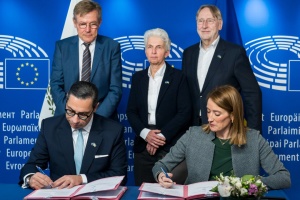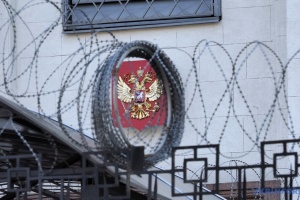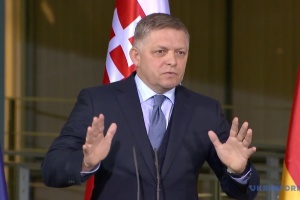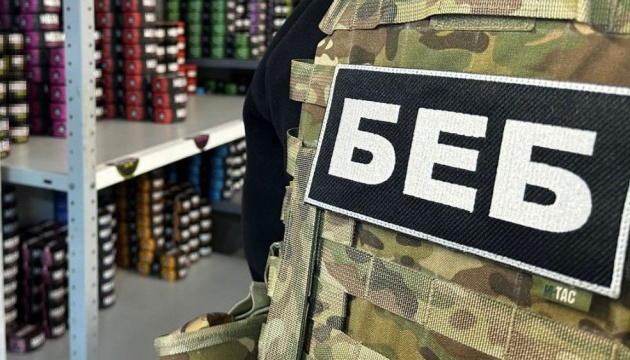
Reforming BES: vision of government, MPs and experts
The government draft law No. 10439 "On the Bureau of Economic Security of Ukraine", registered in late January in the parliament, has once again divided "interested" Ukrainians. Some politicians and businesses (more of the former) believe that the proposed innovations are enough to breathe new life into this relatively young institution, while others (mostly entrepreneurs and experts) say that the proposed changes are actually half-steps, not a complete reboot of the Bureau, which is what the country needs and what our international partners want. Both seem to be open to finding a compromise. But each on the basis of their own idea: representatives of the executive branch - a project from the Cabinet of Ministers, business associations - the draft law No. 10088-1 "On Amendments to Certain Laws of Ukraine on Priority Measures to Reform the Bureau of Economic Security of Ukraine" registered in the fall. How do these documents differ from each other and which one has a better chance of becoming law?
ESTABLISHMENT OF THE BUREAU: WHY A GOOD IDEA WILL NOT "WORK"
The need to reboot the Bureau of Economic Security began to be discussed almost immediately after its creation in the fall of 2021. Over time, the conversations only intensified, and there were more and more claims against the BES. The BES has not yet become a primarily analytical structure that prevents and counteracts economic crimes. Instead, acting by force, it is no different from the former tax police with its pressure on business and "mask shows."
According to the supporters of the new reform, one of the key reasons for this is the formal approach to personnel competitions (or even their complete absence for many vacant positions), which resulted in the backbone of the new bureau being former officials of the same liquidated tax police. The BES rejects such accusations, saying that the main thing when appointing a candidate is his or her professionalism, not his or her affiliation with any "law enforcement school."
"We do not keep records based on this criterion, as it is discriminatory and contrary to the law. However, this percentage is insignificant. In addition, the Bureau employs people from many law enforcement, customs, and tax authorities," Andriy Pashchuk, acting director of the BES, assured Ukrinform in a commentary.
Another criticism of the bureau's work, according to its critics, is the lack of transparency in appointments and the "shuffling" of officials within the structure, with virtually no inflow of "fresh blood." But, in fairness, we should not forget that the most important period of the new institution's formation was at the beginning of Russia's large-scale aggression against Ukraine. This affected the funding of the Bureau, its staff, and its functionality.
"Now, the central office employs 513 people, and the bureau employs 1063 in total. While the law provides for a much larger number. In addition, not all regions have opened territorial offices. Of course, this affects the pace of work, but despite the lack of staffing and funding, the BES shows good results. Last year, the BES saved UAH 8.8 billion of budget funds, reimbursed UAH 2.2 billion of losses in criminal proceedings, and due to the de-shadowing of gambling [gambling business], budget revenues increased almost tenfold. The key performance indicators have almost doubled. This affects the pace of operations," Pashchuk said.
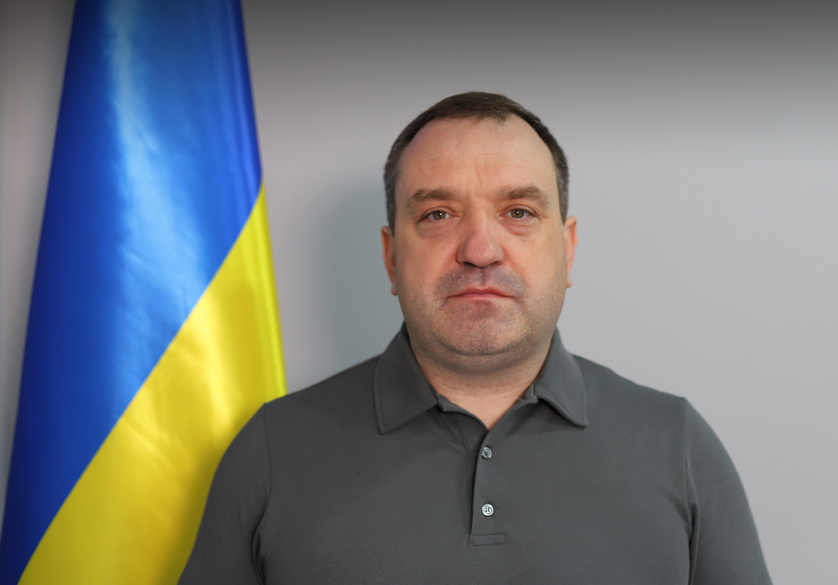
But, according to critics, formal indicators are not enough. After all, the figures in the reports, they say, are provided by old methods and are not the result of modern approaches with a predominance of analytical rather than "power" components. Ukraine's international partners have also noticed this. So they hastened to remind us of this. Under the agreements with the IMF, the current EFF loan program provides for the creation of a single body in Ukraine that will combat economic crimes against the state and tax evasion. By definition, it should be the BES, but obviously not in its current form, but after an update.
Last year in April, it was decided to start the changes with the dismissal of the first director of the Bureau, Vadym Melnyk, formally at his own request. Since then, until a competition to select a new head is held, the agency has been run by acting directors, first Eduard Fedorov, and since August 2023, Andriy Pashchuk.
Updating the sectoral legislation, among other things, should improve the procedure for electing a new full-fledged head. As stated in the Explanatory Note to the government's draft law (No. 10439), the document was developed to fulfill Ukraine's obligations under the Memorandum of Cooperation with the IMF under the current EFF program. The draft law aims to specify the functions and powers of the BES, ensure a transparent process of competitive selection of the head of the bureau, and regulate the formation, operation, and decision-making of the competition commission with the participation of representatives of the Cabinet of Ministers and international organizations. The envisaged procedures also include the use of a polygraph before appointing a candidate to the BES position and improving the system of evaluation (audit) of the BES activities.
"The adoption and implementation of the draft law will help improve the legal framework for the BES; ensure clarity and transparency of the competitive procedures for the election of the BES director; and help ensure that the BES staff is staffed by professional, highly qualified and honest employees, including the management selected by an independent commission with the participation of international experts," the Explanatory Note says.
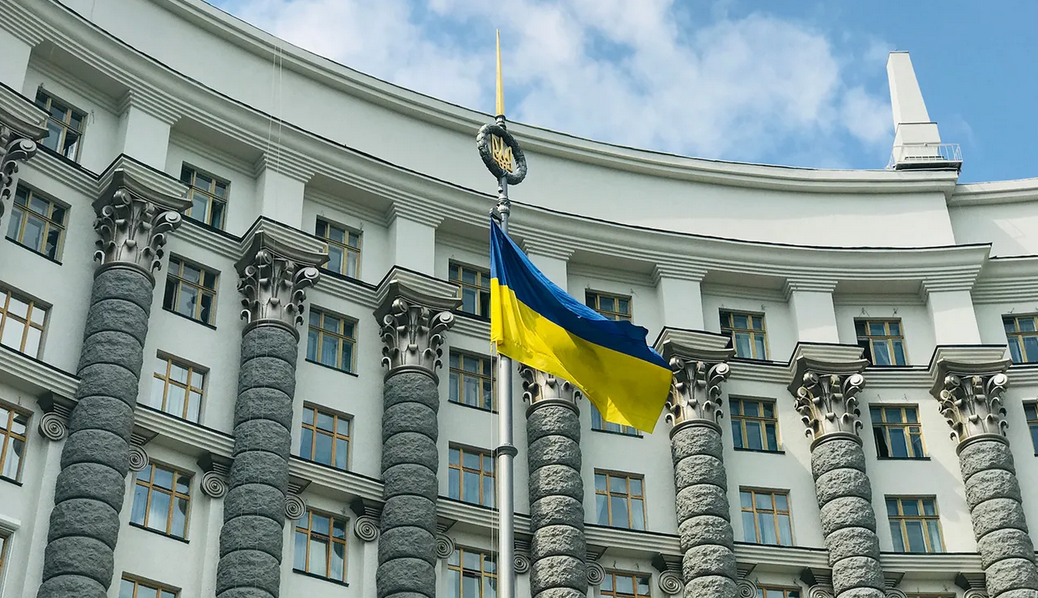
WHAT THE GOVERNMENT PROPOSES
It is proposed to achieve this goal, in particular, through the following steps:
● approving the requirements for members of the competition commission for the election of the BES director, their rights and obligations, as well as the procedure for their decision-making;
● clarifying the grounds for dismissal of the Director of the Bureau of Economic Security of Ukraine;
● establishing a mandatory psychophysiological examination with the use of a polygraph before appointing a person to a position in the BES;
● approval of the regulation on the formation and decision-making by the Commission for External Independent Evaluation (Audit) of the Performance of the Bureau of Economic Security of Ukraine, clarification of the rights and obligations of its members (it is envisaged that the activities of the Commission and its members may be financed by attracting international technical assistance);
● introduction of mandatory certification of deputy directors of the BES, as well as certification of employees of the Bureau of Economic Security of Ukraine who were appointed to their positions before the law came into force one year after the termination or lifting of martial law.
As a reminder, Prime Minister Denys Shmyhal announced the submission of the draft law on rebooting the BES to the Verkhovna Rada in late December. However, the document was registered only a month later, after the President approved the National Security and Defense Council's decision to prevent undue pressure on business. And the BES was mentioned in this decision more than once: both in the context of preparing a draft law on reforming the agency and as part of the task of creating a single body to investigate economic crimes.
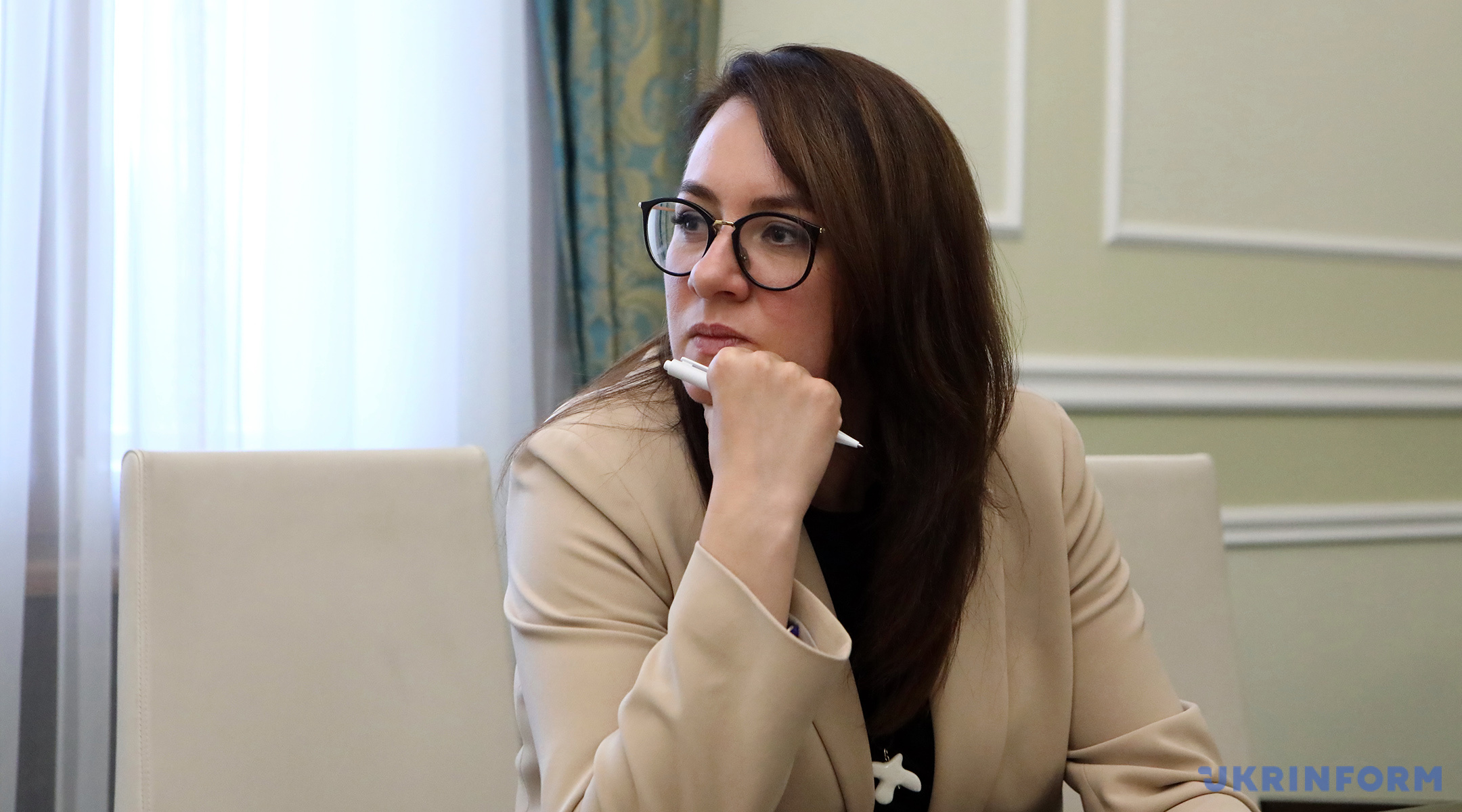
According to First Vice Prime Minister Yuliia Svyrydenko, the submission to the parliament of a draft law amending the law on the Bureau of Economic Security to strengthen its mechanisms is the first step to implement the NSDC decision. Amendments will also be made to the Criminal Procedure Code, the Laws "On Operational and Investigative Activities," "On Basic Principles of State Financial Control in Ukraine," and "On Organizational and Legal Framework for Combating Organized Crime."
The second step is the establishment of a Presidential Council for Business Support for the period of martial law (the President has already signed a decree). The Council will respond to complaints from entrepreneurs and solve their urgent problems.
"Third, inspections of business by law enforcement agencies will be limited. The Office of the Prosecutor General, the State Bureau of Investigation, the National Police of Ukraine, the Security Service of Ukraine, and the Bureau of Economic Security of Ukraine will be recommended to refrain from searches, detentions, and blocking accounts for three months if such actions would block or significantly negatively affect the operation of the enterprise. In addition, it is necessary to conduct an audit of the measures already taken and whether it is advisable to continue to apply them," emphasized Svyrydenko.
PROJECTS №10439 and №10088-1 - two (big?) differences
A number of the changes proposed by the government coincide with the provisions of the draft law No. 10088-1, which was developed last fall. However, parliamentarians believe that steps to reboot the Bureau should be much more decisive, and that the possibility of political influence on the decisions of the competition and personnel commissions should be completely excluded.
Among the fundamental differences are the MPs' proposals for wider participation and a decisive role in the decision-making of the Selection Panel of international representatives. The same applies to the requirement for half of the representatives of international NGOs and diplomatic missions to be members of the personnel commissions that will select candidates for other positions (except for the director) at the BES.
However, the government's draft law also envisages situations where the vote of international representatives in the selection committee may be decisive. This is when, even in the case of repeated voting, the number of those who support and do not support the candidate will be the same.
"If, during repeated voting, a decision in accordance with paragraph one of this part is not made within 24 hours of the first vote, the decision voted for by at least three members of the competition commission, including at least two members of the competition commission appointed by the Cabinet of Ministers of Ukraine on the basis of proposals from international and foreign organizations, shall be deemed to be made," the draft law says.
The MPs' draft law prohibits the transfer of the Bureau's employees to other positions without competition (which has often happened before). It also regulates the submission of only one candidate to the Cabinet of Ministers for approval (the government's draft law contains three candidates, which, according to some experts, retains the risk of political influence on the final appointment).
There are also different approaches to the timing and conditions of re-certification of BES employees. The government proposes to postpone this procedure for a year after the end of martial law, while the authors of an alternative document advise that it be carried out immediately after the law comes into force. The MPs also believe that all employees of the bureau should undergo certification without exception, with no "indulgences" for those who will be appointed after the law is passed.
The documents also provide for different deadlines for rebooting the Bureau: MPs propose to complete the procedure for appointing a new director no later than a year, while the government's draft law does not specify a time frame. This is believed to preserve the risks of deliberate delay of the competition and a repeat of the situation with "eternal" acting directors, which is common in many agencies.
Among the critics of the government's draft law, business representatives are probably the most active. One after another, business associations have published their comments on the document. Experts also have them. For example, experts from a number of think tanks suggest supporting the draft law (No. 10088-1). This is stated in an open letter from the Institute for Social and Economic Transformation, CASE Ukraine, the Institute for Tax Reforms, the Center for Economic Strategy, the Growford Institute, the Institute for Economic Research and Policy Consulting, the Network for the Protection of National Interests "ANTS", FinPulse, Advanter Group, the Chamber of Tax Advisors, the Institute of Finance and Law, and the Center for Public Expertise.
According to analysts, the document created by the parliamentarians more clearly regulates the work of the competition commission for the election of the BES director, as it effectively prevents a "stalemate" situation when, if a candidate needs to be supported by four out of six votes, the decision will fail due to different positions of representatives of the CMU and international donors. Instead, draft law 10088-1 gives preference to the opinion of "internationals" in the case of "3 to 3".
"Another risk of the procedure for forming the competition commission [according to the government] is the lack of requirements for the competence of its members, in particular, experience in the fields of law, anti-corruption, and combating economic crime," the letter says.
Another comment concerns the postponement of the re-certification of the Bureau of Economic Security "until better times." Analysts believe that this should not be delayed. It is also worthwhile to provide a mechanism for dismissing dishonest employees of the Bureau in advance.
According to representatives of think tanks, the reformed Bureau of Economic Security of Ukraine should become the only law enforcement agency that will deal with economic crimes, with the main component of its work being an analytical approach to investigating crimes and, as an exception, the use of preventive measures in the form of searches and seizure of property of potential offenders. The BES is also proposed to be granted the right to obtain free access to state information systems containing data on the financial activities of business entities, state registers of authorities, etc. Currently, the BES detectives demand such documents directly from businesses by sending them written requests. And this is also a kind of pressure tool and additional time costs for entrepreneurs.
So, in general, the authors of the open letter suggest not reinventing the wheel, but applying the same procedures that have proven effective in reforming other government agencies, such as NABU and NAPC, during the BES reboot. In particular, this includes the formation of an effective competition commission for the selection of a candidate for the position of director of the Bureau of Economic Security with the majority of representatives from international organizations; immediate re-certification of all employees of the Bureau of Economic Security, early termination of the powers of the current head and his deputies; analytical orientation in the work of the BES, ensuring publicity of the results of its work and responsibility of officials of the institution for illegal actions.
The Bureau of Economic Security itself carefully studies the draft laws registered in the parliament and prepares its proposals, hoping for a fair and, most importantly, effective solution to make the reform truly effective.
"Regarding the draft laws, some of them pay little attention to strengthening the analytical component of the Bureau and its institutional capacity. That is why we will provide the VRU committees with our proposals based on experience and related to the practical aspects of the legislation. At the same time, the government's draft law is the most constructive and adapted to modern realities," emphasizes Andriy Pashchuk.
It is difficult to say whether the Verkhovna Rada will find votes in support of either of the two main draft laws on reforming the BES (and there are others). The experience of voting for a number of other high-profile documents confirms this. There is also the option of preparing an alternative document - obviously, taking into account the developments of draft law No. 1088-1 - based on the results of the discussion of the government's proposals in the relevant committee of the Verkhovna Rada (on Finance, Taxation and Customs Policy).
However, the timing of the BES reboot for consideration by the session hall has not yet been announced. The only thing we have to take into account is that according to the Memorandum with the International Monetary Fund, updated as part of the second review of the EFF Extended Fund Facility program, the reboot of the Bureau of Economic Security as a structural beacon should start by the end of June 2024. There is still time, but given the squeaky passage of some controversial bills, it is not much...
Vladyslav Obukh, Kyiv


